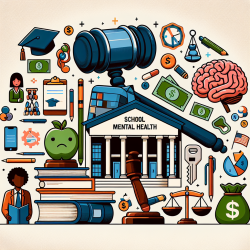Understanding the Theory of Planned Behavior: A Pathway to Enhanced Practitioner Skills
The Theory of Planned Behavior (TPB), developed by Icek Ajzen, has become a cornerstone in understanding human behavior across various domains, including health sciences, environmental science, and education. As a practitioner in the field of special education or online therapy, leveraging the insights from TPB can significantly enhance your professional skills and improve the outcomes for your students or clients.
Key Components of TPB
TPB posits that human behavior is driven by three primary considerations:
- Behavioral Beliefs: These are beliefs about the likely outcomes of a behavior, which form an individual's attitude towards the behavior.
- Normative Beliefs: These involve the perceived social pressure to perform or not perform a behavior, contributing to the subjective norm.
- Control Beliefs: These are beliefs about the factors that may facilitate or impede the performance of the behavior, leading to perceived behavioral control.
Understanding these components can help practitioners predict and influence the intentions and behaviors of their students or clients.
Applications in Special Education and Online Therapy
By applying TPB, practitioners can better tailor their approaches to meet the needs of their students or clients. Here are some practical applications:
- Developing Positive Attitudes: Encourage positive behavioral beliefs by highlighting the benefits of certain behaviors, such as consistent participation in therapy sessions.
- Influencing Normative Beliefs: Utilize peer influence and social norms to create a supportive environment that encourages desired behaviors.
- Enhancing Control Beliefs: Empower students or clients by addressing barriers and facilitating access to resources, thereby increasing their perceived control over their actions.
Encouraging Further Research and Application
While TPB provides a robust framework, continuous research and adaptation are essential for its effective application. Practitioners are encouraged to explore the latest advancements and applications of TPB to refine their strategies. Engaging with current research can also inspire innovative approaches to common challenges faced in special education and online therapy.
Conclusion
The Theory of Planned Behavior offers valuable insights for practitioners seeking to improve their skills and enhance the effectiveness of their interventions. By understanding and applying the principles of TPB, practitioners can better predict and influence the behaviors of their students or clients, ultimately leading to more successful outcomes.
To read the original research paper, please follow this link: The Theory of Planned Behavior: Selected Recent Advances and Applications.










